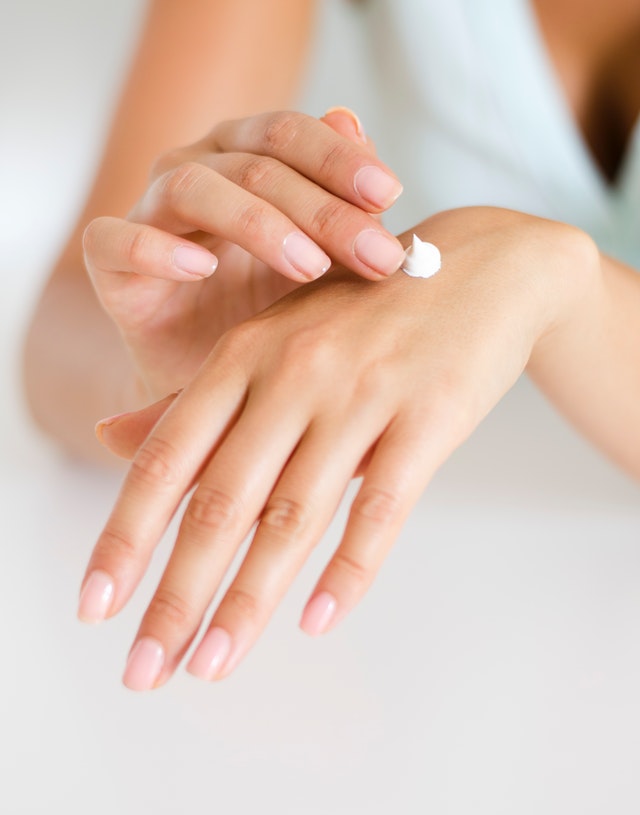
Basic Routine for Your Way To Flawless Skin
With all the skincare products and advice peddled around online and offline, it can be a daunting task to pick on something that works for you. Many people experiment with products and routines that won’t work for them. The main reason is that they are either doing it all wrong or using products that don’t work well with their skin types.
One of the essential skincare tips is knowing your skin. For instance, is it oily or dry or a mix of both? How does it react under sunny weather or extreme cold? What products work best with you? If these are some of the questions bothering you, then you’ve come to the right place.
Although the process seems hard, it’s achievable if you work with a combination of valuable routine practices. Here are some tips.
-
Table of Contents
ToggleApply A Moisturizer Regularly

The water content of your skin plays a vital part in keeping it healthy. Moisturizing ensures that your skin is neither too dry nor too oily. Although dry skin is not a critical health issue, it can lead to some serious complications like bleeding from internal tissues and the development of red patches.
Moisturizing brings about this critical balance and helps to conceal blemishes on the skin. Experts’ advice for moisturization after a bath, shave, or exfoliation. Besides, hot water used in shower time strips most of the moisture and oils on the surface. This leaves it dry and dehydrated. This underlines the need for moisturization after taking a bath.
-
Get Enough Sleep

You cannot underestimate the health benefits of a goodnight’s sleep. Good sleep is not just important for the relaxation of your brain; it is also beneficial to your skin. When you sleep, the body produces melatonin, a chemical that serves as an antioxidant and helps to fight dark spots, wrinkles, and skin cancers. Melatonin is also essential for cell repair and keeps the skin glowing.
Another interesting observation is that poor sleep can lead to the production of more stress hormones in the body, thus accelerating inflammatory conditions such as acne. On the contrary, sound sleep will help your skin to relax and clear up residue.
-
Eat Healthy Food

Foods such as fish provide a good supply of omega-3 nutrients, which help keep the skin supple, moisturized, and well maintained. Avocados are also a good source of fats that can help to keep the skin healthy and firm.
Ultimately, what we eat plays a crucial part in what our bodies give out in the long run. Fruits and vegetables deliver a lot of benefits to our bodies, and the skin is a beneficiary of several nutrients found in them.
Tomatoes, spinach, sweet potatoes, beans, as well as tangerines and peppers can all be part of your meals as they have essential nutrients for the skin.
-
Avoid Using Poor Quality Products
The skincare and beauty industry is a multi-million dollar industry. There are lots of genuine products but just as many fake products. Some of these products are equally dangerous and may even cause more damage to the skin.
You should gather as much information regarding particular products before settling on them as a good choice for skincare. Importantly, if you come across a product that works well for your skin, use it for longer. Attempting every product that purports to help your skin is dangerous. Go for verified products such for better skin health or else give a facelift to enhance your looks.
-
Avoid Altering Your Skin
To alter the natural appearance of the skin, people engage in various skin-changing techniques. This, in turn, exposes them to dangers, including skin cancer. Some of the common habits include tanning and bleaching.
Tanning happens naturally or using artificial products. It involves exposing the skin to the sun’s Ultra Violet (UV) rays, which eventually leads to noticeable changes in the complexion of the skin. Sunbathing is a common practice that leads to skin tanning. This practice is not advisable as the UV rays penetrate the skin to a dangerous level to achieve change in your DNA. The artificial products used for skin tanning are not safe either and also raise the risk of skin cancer.
Bleaching is yet another common but dangerous practice. Experts say that the risks heavily outweigh the possible benefits, and results are never guaranteed. In addition to the cost, skin lightening has severe complications and side effects. It is crucial to analyze the risks involved.
-
Drink Water Regularly
Drinking lots of water helps the body in fighting skin disorders such as eczema and psoriasis. Water helps the digestive system to eliminate toxins from your body. As a result, your complexion becomes healthy, giving you glowing skin.
According to a study, taking two cups of water can boost blood flow to your skin, thus helps to even your skin complexion and skin tone.
-
Exercise Regularly

Exercising has an impact on your overall wellbeing. It can also help the skin by improving blood flow to the skin and boosting immunity. It is, however, advisable that you clear the skin off sweat and other particles after excising. This helps to unclog the pores and keep the skin fresh and healthy.
Conclusion
The skin is a sensitive organ and demands great care, which requires following a good skincare routine. Being the external organ that protects the inner parts of your body, it takes in most of the damage from bruises, bad weather, and poor health. Leaving your skin unattended can lead to injuries and even severe skin disorders.
Provided in this guide are some of the best approaches to make the skin retain its glow for a long time. Following them will help to protect the skin from most of the dangers it experiences daily.


